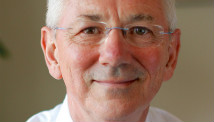Behind the mask
Scales of justice
Moment of truth
Fans celebrate
Armed and ready
Rally at the club
Portrait of the dead
ACAB
Down with Morsi
Army in control
Port Said women protest
Al Masry ultras
The sound of machine guns
Aftermath
Protest
Shots fired
Empty stands
Harrowing reminder
<<
<
1
2
3
4
5
6
7
8
9
10
11
12
13
14
15
16
17
18
>
>>
STORY HIGHLIGHTS
- Chaos erupted in Egypt after 21 people were sentenced to death following a football riot
- More than 70 people died after match in Port Said between local club Al Masry and Al Ahly
- Egyptian league was suspended and has yet to restart due to threats of further violence
- Verdicts for 52 other defendants who were arrested after riot is expected March 9
(CNN) -- The faces of more than 70 young men and boys bore down on the crowd of thousands outside Al Ahly's training complex in Cairo.
As many as 15,000 members of the Ahlawy, the organized ultras fan group of Egypt's most popular soccer club, had gathered here early for the news they, and the country, had been waiting almost a year to hear.
At 10 a.m. a judge was to deliver a verdict on one of the darkest moments in the history of the game.
It happened on February 1, 2012, when more than 70 -- those young men and boys whose faces now appear on a billboard high above the entrance of the club -- lost their lives after a match in the Mediterranean city of Port Said, against local club Al Masry.
Most of the dead were crushed when the Al Masry fans stormed the pitch.
The players sprinted for their lives, finding sanctuary in the dressing room. And then the floodlights went out.
When the lights came back on 10 minutes later, the dead lay piled in a tunnel, in front of a locked, metal gate that had prevented escape before it collapsed under the weight of bodies.
Direct action
Seventy-three people were arrested, many accused of murder. They were mostly Al Masry fans, but included several members of the security forces.
The man allegedly responsible for cutting the power to the lights was also arrested. The Ahlawy suspected that a hidden hand was at work.
There were conspiracy theories, many asked questions: was this just a football rivalry gone very wrong? Or did police allow the violence as payback against the ultras for their part in the revolution?
Read: Clashes erupt after Egypt court sentences
The Ahlawy had played a crucial role in the revolution. They were an organized group of tens of the thousands of young men willing to fight the police -- as they had both inside and out of Egypt's soccer stadiums for the previous four years -- to make their voices heard.
The authorities denied any collusion. It was a tragic accident, they said. Hooliganism and ineptitude, no more, no less, no hidden hand.
But many of the Ahlawy fans were not convinced. The Egyptian soccer league was canceled and the Ahlawy waged a successful direct action campaign to prevent its restart until justice had been served.
The young men waited for the verdict on Saturday. Several had come armed, in anticipation of a further postponement or, worst still, a not guilty verdict. Some carried clubs, others homemade pistols and double-barreled sawn-off shotguns.
Tear gas
At 10 a.m. the judge rose on national television and delivered his verdict. Twenty-one of the accused were sentenced to death. The verdicts for the remaining defendants are expected March 9.
The news swept through the crowd, reducing those in its path to tears of joy; teenagers who had lost friends, mothers who had lost sons, wives who had lost husbands.
Scores dead in Egypt soccer riot
HIDE CAPTION
"It's a very good decision by the court," said Mihai, a member of the Ahlawy who had come to hear the verdict. As with all the ultras, he declined to give his last name.
The guns that had been brought in anticipation of violence were fired into the sky in celebration.
One fan fired an automatic pistol until it jammed. He inspected the piece of failing, unfamiliar equipment. Unable to fix it, he tucked it into his belt and jumped into the sea of celebrating men.
"We hope it will be a perfect ending for this story. We have been waiting for this for so long. For 21 to get executed is a very good decision. So now we wait for the police decision. For sure it wasn't just them that made this," Mihai said.
Back in February, with the raw memories of Port Said just a few weeks old, the Ahlawy had demanded that those responsible should be put to death.
With the court verdict, they received their wish. Justice, they believed, had been served. At least partially.
"The police will be (put to) trial on March 9," said Mohamed, a founding member of the Ahlawy.
The previous night -- on the Egyptian revolution's anniversary -- Cairo was blanketed in tear gas as protesters roamed the streets surrounding Tahrir Square, venting their anger at President Mohamed Morsy and what they see as a lack of any real reforms.
Many, including the Ahlawy, expected further confrontations after the verdict.
But as the crowd moved inside the complex, holding a rally on the club's main soccer pitch, it became clear that no fighting would take place that day.
"I feel satisfied that some of those who committed what we suffered a year ago are going to face what they deserve," said Ahmed, another founding member of the Ahlawy who believed that the right decision had been made.
"It's a strong verdict but they don't deserve less than a strong verdict. Nobody ever wants to see someone dying but when someone kills he deserves a death sentence. He deserves that his life is taken. I don't see a way the police can get away with this."
Port Said ignited
Not everyone was happy, especially those who saw the verdict as a potential springboard to challenge Morsy, whom many of the Ahlawy view as no different from Hosni Mubarak, the former dictator who ruled Egypt for almost 30 years.
"They are giving us something of a painkiller to take out the anger from the young lads -- for me it is not enough," said Hassan, an Ahly fan standing on the training ground pitch.
Egypt unstable after days of protest
HIDE CAPTION
<<
<
1
2
3
4
5
6
7
8
9
10
11
12
13
14
15
16
17
18
19
20
>
>>
Ultra culture
HIDE CAPTION
"All the other political movements and parties were looking at what was going to happen today. Everyone had their hopes for the ultras and now they have given us this painkiller and it has lost its momentum of something really happening against the new regime," he added.
But what had -- if only temporarily -- calmed the Ahlawy, it ignited Port Said.
The verdicts were greeted with astonishment, disbelief, and anger by Al Masry's fans and the families of the 73 accused who had gathered outside the prison in Port Said where the suspects were held.
Like the Ahlawy supporters in Cairo, they too had come prepared. Two policemen were shot dead as the relatives tried to storm the prison. The police fired back. At least 30 people were killed in clashes. Among them was a former Al Masry player.
President Morsy addressed the nation and announced a 30-day curfew, from 9 p.m. until 6 a.m. in the cities worst effected by the violence.
A few hours before the first curfew was due to fall, a storm rolled into Port Said. The streets were empty, the skies dark and pregnant with rain as 9 p.m. approached.
The only sound was the faint, periodic burst of gunfire. It emanated from near the Al Arab police station by the sea.
Smoldering barricades
On approaching it, the dead streets suddenly came alive, as if the entire energy of the city had been focused on one point. Barricades made from burning tires separated the police from groups of young men, exchanging rocks for gunfire.
The clashes had followed the funeral of more protesters, killed the day after the violence outside the prison.
"There are some injuries here," a member of the Red Crescent said as he sheltered from the gunfire in a side street. Ambulances flew by, their sirens blaring.
"We've seen gun bullets from the government. In four days we have seen more than 450 (injured)."
The prospects of a hastily arranged march to defy Morsy's curfew, looked bleak.
But at 8.30 p.m. a crowd of thousands gathered near the same spot the Red Crescent had been waiting to ferry the injured to hospital. They marched through the smoldering barricades towards where the gunfire had previously come from.
Now the army, not the police, was in charge.
Armored personnel carriers and armed troops were stationed on street corners and outside important military and civilian buildings.
At its core were the fans of Al Masry ultras group the Green Eagles. But they were by no means alone. The marchers had come from all sections of Port Said. Several hundred women marched together, denouncing Morsy and Cairo.
The curfew came and went, the crowd mocking its passing. "It's 9 o'clock!" they chanted as they passed the stationed troops.
But there was no animosity towards the army. The police was the enemy. Protesters took it in turns to hug and kiss the young soldiers.
Few would readily admit to being Al Masry fans, nor say whether they were there on that fateful night almost a year ago that set in motion this chain of deadly events.
Vendetta
What they would say is that they believed a miscarriage of justice had taken place, that Morsy had sacrificed Port Said to prevent chaos in Cairo, that traditional antipathy towards Port Said was at play.
"People are truly sure that these people (the 21 sentenced to death) didn't kill anyone. We didn't do it and they (the Ahlawy) don't believe we didn't do this," said Tariq Youssef, a 32-year-old accountant who was on the march with a friend.
"Al Masry will not be back for five years. I'm a big Masry fan. But I can't go anywhere. All the supporters for the big teams in Cairo or anywhere believe that Al Masry supporters did this."
For Tariq, admitting to being an Al Masry supporter outside of Port Said was impossible.
"They say, 'You killed them the Ahly supporters. You are like a terrorist.' Nobody believes us we didn't do anything here. There will be no football in the next five years."
As the march moved back towards the place it had started, machine gun fire rang out once again.
This time it was all around the march, front and back. The crowd scattered. A protester had been shot dead at the back of the march, next to the Al Arab police station.
"In three days we have lost 21 people, judged to be executed, and also about 39 murdered and many injured so there is no family which have not lost a friend, a colleague, a neighbor.
"You can consider this a sort of vendetta between the people and the police," said Muhammad el Agiery, an English tutor who had stayed until the end.
"People are going to stay out all of the night, every day for a month. They reject and refuse the curfew imposed by Morsy," he added.
The next morning the storm was gone and the sun was shining. But the cycle of violence continues. Another funeral march will begin, another barricade will likely be set on fire, and another curfew broken.






